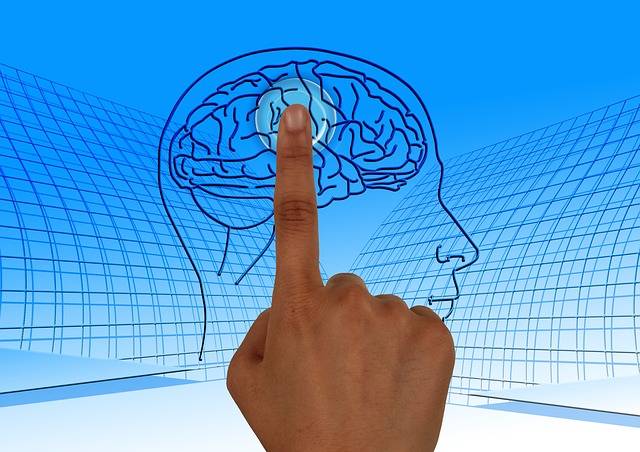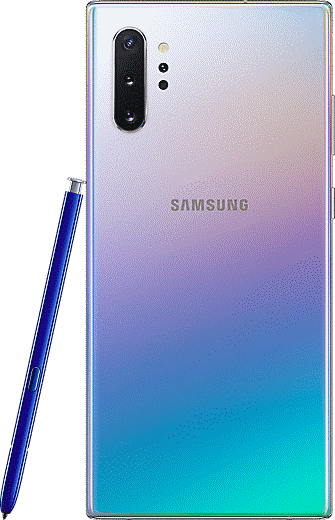This content has been archived. It may no longer be relevant
Video Transcript
Julissa: You are still here. Ryan with Nerds on Call. You’re still hanging out with us this morning talking about how you can really train your brain.
Ryan: So here’s the thing. A couple of years ago, this was a really popular thing. With all these apps online where you could train your brain, get better memory, get better math, that kind of stuff. And so we kind of took a closer look. One of the main companies out there, there’s too many companies out there.
Julissa: Okay.
Ryan: It’s called Lumosity. And Lumosity claims if you spend 10 to 15 minutes, 3 to 4 times a week, you can improve your performance on everyday tasks, improve your memory…
Julissa: Okay.
Ryan: …and sequence of stuff…
Julissa: Okay.
Ryan: …and they say they can even delay age-related cognitive decline…
Julissa: Really?
Ryan: …like for example Alzheimer’s. That kind of thing.
Julissa: Okay.
Ryan: But here’s the thing. They got in trouble for saying things like that. They got fined by the FTC back in January for about $200,000.
Julissa: [inaudible 00:00:48]
Ryan: Yes. And another company called LearningRx made very similar claims. They said they were improved performance, athletic performance, job performance, career test scores, and they even targeted searches for people looking for autism cures and brain injury cures and things like that. Well, they got in trouble too for about $200,000…
Julissa: Okay, okay.
Ryan: …from the FTC. So we started thinking, are these really a scam and is this something if I’m spending a couple of bucks on an app. Should I really be that concerned? But neuroscientists agree that the brain can still be molded. No matter what age you’re at. You can create new neuro pathways and you can do new things.
Julissa: Okay.
Ryan: So really kind of what’s the harm…
Julissa: What’s the harm in trying to do that?
Ryan: …and you’ve done some things to improve since they got in trouble.
Julissa: Okay.
Ryan: So this is called Lumosity, it’s 12 bucks a month, it’s $80 a year, it’s a little expensive, but here’s one of the cool parts about it…
Julissa: Okay.
Ryan: …is it’s made by actual neuroscientists and with over 40 universities are involved in working on this app. And when you use the app, you start out by taking a baseline test, and then once you start using the app over time you’ll be able to see your own scores. You can see whether or not you’ve improved yourself. And if you don’t improve, ditch the app.
Julissa: Then you are done.
Ryan: So this one is called Elevate. This is a new one. This one got app of the year in the app store 2014 both Google and the app store for IOS. And this is cool because you can focus on very specific things like memory, cognition, math skills, or whatever.
Julissa: Okay.
Ryan: And they have over 40 different skills. You choose the skills you wanna concentrate on, it’ll create tests directly for that, do it five times, and then you can track your scores to see how well you did.
Julissa: Okay.
Ryan: It’s that cool.
Julissa: Okay.
Ryan: If you’re an older person or you’re having trouble with sort of your peripheral vision, this one is called DriveSharp and this is if you’re a triple A member, were injured by the triple A, this can be free. And you just go to drivesharp.com. This is really cool. So it just kind of shows you your peripheral vision, gives you a little faster reaction time and studies have shown 48% less accidents if you use this kind of app.
Julissa: That’s worth at least a try. Yeah.
Ryan: Of course more scientists agree that just sleep and exercise. That’s gonna make you smarter.
Julissa: And that’s free for the most part.
Ryan: Well it’s free unless you like hanging out at the gym like this. Taking a little nap.
Julissa: Oh but a nap oh. Okay. All right. Ryan thank you so much. Good. Very interesting. Thanks so much. Okay, Nerd Alert is off now.
Julissa: All right. Back over to you.
In recent years, there’s been a wave of apps, games and brain activity tracking modules that claim to improve cognitive function. Yet critics call it “pseudoscience.” So let’s answer the question. Can you really improve your focus or memory with a game?
You have to be careful what you believe, as marketers are keen to use “alternative facts” to better sell their product, or get you to download their app. It’s such a problem that some program creators have recently had to pay hefty fines for deceptive marketing.
Like This? We have more!
Sign up below to be kept in the loop and be sent more content like this in the future!
Lumosity Creators agreed to pay $2 million to settle charges from the FTC.
Charges alleged that Lumosity deceived their consumers by stating unfounded claims that its games could sharpen thinking in everyday life and protect against cognitive decline. It was alleged that they preyed on customer fears of memory loss, dementia & Alzheimer’s.
LearningRx paid $200,000 in May 2016 to settle similar charges by FTC
Charges alleged that LearningRX deceptively claimed that their programs were clinically proven to permanently improve serious health conditions like ADHD, autism, dementia, Alzheimer’s disease, strokes, and concussions and that the training substantially improved school grades and college admission test scores, career earnings, and job and athletic performance. Their Google ads targeted those searching “cure for ADD,” “autism cure,” “Asperger cure,” and “severe traumatic brain injury cure.”
So are they a scam?
The problem is that the “many” studies supporting claims that these products help brain function are small or flawed. The way to approach this is that it doesn’t hurt, and they might help. Most neuroscientists agree the brain can be molded; creating new neuropathways by exercising your brain in the same way you’d exercise your muscles. But there is no scientific evidence that training on one repetitive task – like practicing memory – has cognitive benefits. Instead, you should pick a program that has a variety of “training” activities.
Slides from our TV appearance:
Our suggestions for you to try
Lumosity Brain Games, cost either $12/mo or $80/year. The games are designed by neuroscientists and a collaboration of over 40 universities. They offer personalized “brain training” games and has 85 million users worldwide.
If you spend 15 minutes a day, 3-5 days a week. They suggests you can improve memory, attention or problem solving. They also say you can get real-life mind benefits while you play.
Elevate app, costs $4.99/mo or $40/year. This app earned Apple App of the Year in 2014 and has 40+ training activities. They state that their games can be used for improving critical cognitive skills like focus, memory, processing, math, precision, and comprehension.
Their games are designed in collaboration with experts in neuroscience and cognitive learning and let you choose the skills you want to focus on. There is the ability to create personalized daily workouts with progressive difficulty to keep the games challenging.
DriveSharp App, is $49 for AAA members over the age of 55 but can be free to some people insured with AAA. This app is a Posit Science brain-training which is clinically proven to help the visual systems of older drivers to respond faster to hazards in their peripheral vision. Users complete visual attention tests and multiple object tracking tasks. They claim that the risk of an at-fault crash can decrease by 48%.
The final word…
Science indicates that daily exercise and consistent sleep will be more likely to improve your memory than games. So go to bed!
Like This? We have more!
Sign up below to be kept in the loop and be sent more content like this in the future!






